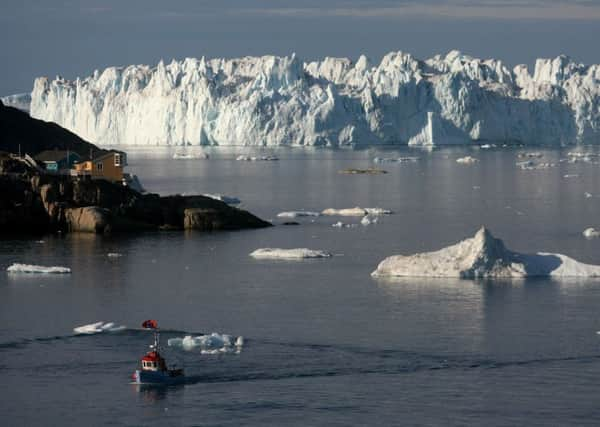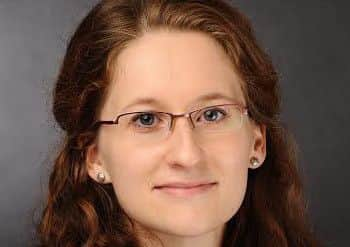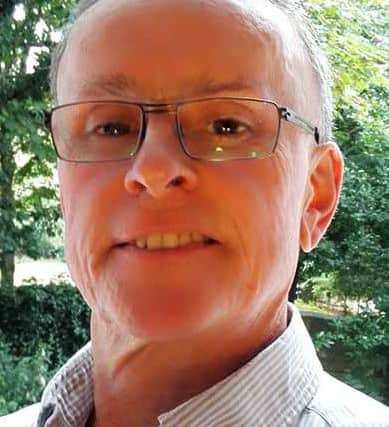Scotland's seven new low-carbon pioneers


From turning used coffee cups into nutrient-rich plant pots to urban farming and harder working , the ideas arriving at the ECCI are as diverse as they are impressive.
The Edinburgh-based recruits will be sponsored by law firm Shepherd and Wedderburn and supported by the centre’s network of academics and scientists.
Advertisement
Hide AdAdvertisement
Hide AdEd Craig, ECCI Head of Enterprise & Innovation said: “There’s an ever-increasing buzz about ECCI and it’s just been ramped up another gear with these exciting new residents.”


LESS WATER, LESS WASTE
Denny Schenk, 25 – Retromixer
Separate taps for hot and cold water are common in Britain but long known to waste water and use excessive energy.
Retromixer is a simple, affordable, plastic device that you fit over the taps, giving one stream of water at the right temperature.


Mr Schenk and his partner Artur Napiorkowski, 28, said people no longer wanted to fill a sink to wash their hands but that moving hands under two running taps was wasteful.
Retromixer - or retrofitted mixer for separate taps - brings both streams together and is made of recyclable material resistant to high temperature. It is said to reduce water consumption by 50 per cent.
FROM OLD COFFEE, NEW LIFE
Franziska Srocke, 28 - GroVite


Ms Sroke hopes to make a high-quality growing material which contains biochar - a type of charcoal that in this case is made from used coffee grounds and paper coffee cups.
She believes it will make the ideal plant pot given its in-built capabilities to fertilise and condition the soil with its highly porous structure. This will improves moisture, retain nutrients and aerate the soil to give flowers and plants the healthiest start in life.
They will also reduce waste and carbon emissions by recycling the coffee-based material.
TRAIN NOT PLANE


Chris Palmer, 24, – Carbon Railcard
Advertisement
Hide AdAdvertisement
Hide AdMr Palmer wants rail travel to be the first choice of Scottish businesses with the Carbon Railcard to incentivise taking the train over the plane.
He is taking the business case for rail travel to individual companies with details of potential carbon savings, cost savings and increased productivity of workers.
Mr Palmer is also working with train companies on incentives such as discounts and free wi-fi.
He said: “It’s all about trying to change the way that businesses travel and finding a solution to our addiction to air travel, which is 10 times worse for the environment than taking the train.”
He said that working with ECCI will give him added credibility when dealing with banks and business.


FUEL EFFICIENCY
Jim Stout, 59 – ScreeTech
Mr Stout is working with the team behind a simple canister that fits to a vehicle’s fuel line and reduces petrol or diesel use by 5 to 15 per cent.
Fuel is made more efficient as is passes through an Infrared delivery system, which causes molecular vibration and reduces the activation energy required for combustion, making fuel burn faster and more completely.
Funding is in place to provide free trials to fleet users with good consumption data, Mr Stout said.
Advertisement
Hide AdAdvertisement
Hide AdHe added: “ScreeTech is fully aligned with ECCI in taking Scotland towards a low carbon economy and I am excited about the opportunity to work with like-minded carbon professionals.”
LOW CARBON HOUSING FOR LEAST WELL OFF
Iyobosa Irabor - Housing Futures
Ms Irabor’s core mission is to create low carbon housing for the least well off using an innovative finance model.
She hopes to use Development Impact Bonds to create the homes, with the bonds typically put up by private investors with their money returned by donors and governments should the project prove successful.
Once profitable, Housing Futures hope to create finance for those less well off to invest in their own properties.
FROM URBAN FARM GATE TO PLATE
Alejandro Inostroza – Foodyfarmers
Mr Inostroza wants to bring agriculture closer to cities and promote urban farming as a way of providing healthy food in a sustainable way.
His Foodyfarmers uses GPS to connect urban farmers with shoppers, grocers and restaurants while allowing growers to connect with each other to exchange goods and skills.
He said his wants to use technology to contribute to food security, environmental protection and community wellbeing.Mr Inostroza said: “Today with the support of the ECCI we are developing an idea related to our urban agriculture area to involves our dream to bring closer agriculture to the people in the cities.”
EDUCATION
Siobhan Hill, 34 - ADEPT
Ms Hill is aiming to educate young people on the impact climate change will have on their everyday lives and how they can meet the challenges it poses.
Advertisement
Hide AdAdvertisement
Hide AdShe has created a software tool that allows users to assess how buildings can be made more sustainable, protected and cost effective to its effects.
Ms Hill: “We have constantly found that schools don’t know how to engage with young people about climate change and they are not teaching them the critical thinking skills to solve challenges posed by it. We want to bridge that gap. The rea lity is that children will keep being challenged by climate change and we want to make them as resilient as possible to it.”